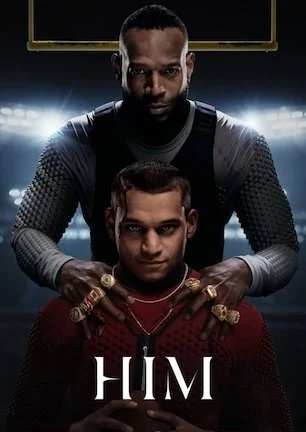Studio: The Asylum
Director: James Cullen Bressack
Writer: James Cullen Bressack
Producer: David Michael Latt
Stars: Trae Ireland, Erin Coker, Jody Barton, Nihilist Gelo, Tiffany Martinez
Review Score:
Summary:
When the date turns to 13/13/13 on the Mayan calendar, madness and rage consumes all humans save those born on February 29th.
Review:
Albert Einstein may not have had movies from The Asylum in mind when he coined the phrase, but his definition of insanity still applies. To paraphrase, continually watching films from the house that mockbusters built and expecting one of them to break the mold of downright awful to mediocre at best is about as insane as it gets. Leaning closer to the former category than to the latter, The Asylum’s “13/13/13” is not just bad, it is bizarrely bad.
“Insanity” aptly applies to the movie in more ways than one. Like a cut-rate Dr. Moreau, “13/13/13” mates the shadow of “28 Days Later” with an echo of “The Crazies” on a bed of Mayan malarkey about how Leap Year actually puts the calendar at the 13th day of the 13th month in the 13th year of the new millennium. (Lousy Smarch weather.) Anyone born of February 29th is mysteriously immune, but the triply unlucky date means everyone else in the world succumbs to a state of mad rage where bloody murder becomes commonplace.
The strange behavior begins well before people start strangling each other and smearing blood on the walls. Jack is an ex-cop. This is evident early on when his former partner Quentin expressly states, “you were a cop” for the audience’s benefit. Jack is the first to notice things are amiss when he points out that both his watch and the car radio strangely report the time as 13:13. Only slightly misusing the phrase, Quentin writes it off as “the law of attraction.”
Aren't they *all* beautiful?
Jack is going through a divorce with his ex-wife Marcy. Although he is black and his wife is white, their daughter Kendra is Hispanic, so we will just assume that the girl is adopted. As they return from a camping weekend, Jack tells his buddies that they have to stop by his old place. Either Jack himself or more likely the script immediately forgets that Jack is divorced and no longer lives there, so he simply walks right in the house and begins pulling beers from the fridge without so much as a hello.
When Jack sees Marcy furiously scrubbing at the skin on her arm like a clean freak off his OCD meds, he rushes her to the hospital only to be greeted by more F-bombs than 24 consecutive hours of Def Comedy Jam. To illustrate the escalating aggression, characters in the film curse and swear almost as much as frustrated renters returning this disc to Redbox.
Slow on the uptake, Jack takes his time accepting that the world has plunged into sudden and catastrophic chaos. Jack spends the first act wandering in a perpetual daydream state, watching people rage and paint with blood while he wears a facial expression that looks as if he is just wondering why everyone is wearing shorts instead of pants. After killing several infected and hearing a news report that martial law is in effect for all 50 states, Jack’s escape plan is to “go to the next town over” because “maybe they’re not infected.” After everything you have seen today Jack, what could possibly give you that idea?
"Okay, now let's try a take where you play it really over the top."
The third act morphs into a more tolerable zombie-style standoff as the uninfected team with those fighting infection to take on waves of the thoroughly infected as if holed up inside a fortified Pennsylvania farmhouse. What really prevents the movie from being remotely enjoyable, however, is a screenplay that never feels like it wants to be original or even very good. The lackadaisical approach to establishing characters and plot threads is virtually spat in the viewer’s face at multiple turns.
While Jack tends to Marcy in the hospital, he calls Quentin back at the house and has him put Kendra on the phone. Yet the other side of this scene never comes close to taking place. The phone call occurs after Kendra has already run off following her murder of Jack’s pedophile friend Trevor. Why Jack would leave his daughter with a man he suspects has an unhealthy affinity for the girl is one question. Where in the timeline Quentin could have taken this phone call is another. It is as though two different writers worked on a draft of the script without knowing what the other was doing.
“13/13/13” stretches itself out by having the leads kill more time than they do infected humans. The rest of the space is filled with more moments of maniacal laughing than an army of funhouse fat ladies at a supervillain convention. Between that and the absurd overacting, one wonders if the film might be trying to drive the viewer as batty as the cast. Anyone left with any sanity by the film’s end will learn that the movie is a schizophrenic zombie itself. “13/13/13” shambles along on the muscle memory of how a movie is supposed to look and work, but it is sadly devoid of any pulse beat or life signs at all.
Review Score: 30








This is an unentertaining sequel that’s poorly designed as a movie, and unnecessarily plodding as a story.